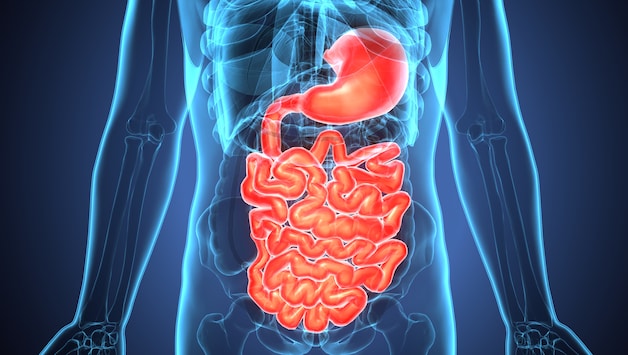A bloated stomach is not only visually unsightly, but primarily uncomfortable. Often this is simply due to the foods we eat. A Harvard doctor explains what you should definitely avoid – and what is good for your intestines.
Feeling full, bloating and bubbling in the stomach – one in ten people suffer from regular digestive problems. The reasons for this can be varied: from stress to medication, to intolerances and hormonal fluctuations. Finding the cause is therefore not always easy.
“Finding out what the cause is is not easy because there are many factors that influence our digestion,” writes gastroenterologist Jaqueline Wolf from the renowned Harvard University in the USA on “CNBC.com”. A very common cause, however, is diet. This mainly involves certain foods that are poorly absorbed by the intestines. So, according to Wolf, anyone who often suffers from bloating and a feeling of fullness after eating should avoid the following foods:
Fruit sugar, or fructose, is not only found in fruit and vegetables, but is often used to sweeten industrially produced foods. According to Wolf, around half of the population (in the USA) suffers from fructose malabsorption. This means that the fructose can only be absorbed into the blood from the small intestine to a limited extent or not at all and therefore reaches the large intestine.
According to experts, one in three people in Germany is affected. You should therefore be careful not only with fruit, but also with industrially produced foods, which often contain fructose:
Fruit is healthy and tastes delicious. But the sweeter the fruit, the higher the risk of getting a bloated stomach. Because of the high fructose content, they are not so digestible – especially if you suffer from fructose malabsorption. The following types of fruit contain particularly high levels of fructose:
If you still don’t want to do without fruit, you should choose the following types of fruit instead, according to Wolf:
Vegetables are also healthy, but unfortunately they can also cause flatulence. The fructans and galactans they contain are responsible for this, explains Wolf. These are complex sugars, i.e. carbohydrates. According to Wolf, these are broken down by intestinal bacteria in the intestines, which can lead to flatulence. Most common in the following types of vegetables:
However, the following varieties are much more tolerable and less bloating:
Grains such as
contains gluten, which can cause bloating in people with intolerances. Much less stressful for the intestines are gluten-free grains such as
Beans are also among the foods that put a strain on the digestive system. According to Wolf, the reason for this is the so-called raffinose, another type of sugar that the body has difficulty breaking down. The large amount of fiber contained in beans can also cause flatulence. The most flatulent varieties are
Much better, however:
Fermented foods are healthy and actually good for the intestines, as the fermentation process produces many bacteria that are healthy for the intestines, as well as other vitamins and minerals. However, Wolf points out that fermented foods such as
can also cause severe flatulence and therefore should not be consumed in excess.
Lactose can also lead to flatulence. According to the Federal Center for Nutrition (BZFE), 15 to 20 percent of people in Germany alone are affected by lactose intolerance. The body does not produce enough lactase, an enzyme that breaks down lactose in the small intestine. This causes lactose to reach the large intestine, where it is fermented by intestinal bacteria. This in turn leads to flatulence, abdominal cramps and diarrhea. Lactose-free products can therefore provide relief.
However, certain dairy products such as yogurt or quark are often well tolerated because they contain lactic acid bacteria that make it easier for the body to digest lactose. Some types of cheese that are aged for a long time also contain little lactose, as this is converted into lactic acid over time. Examples of low-lactose cheeses include:
Wolf also advises avoiding sugar substitutes such as
According to Wolf, they cause a bloated stomach because the body cannot break down the sugar. The better alternatives:









